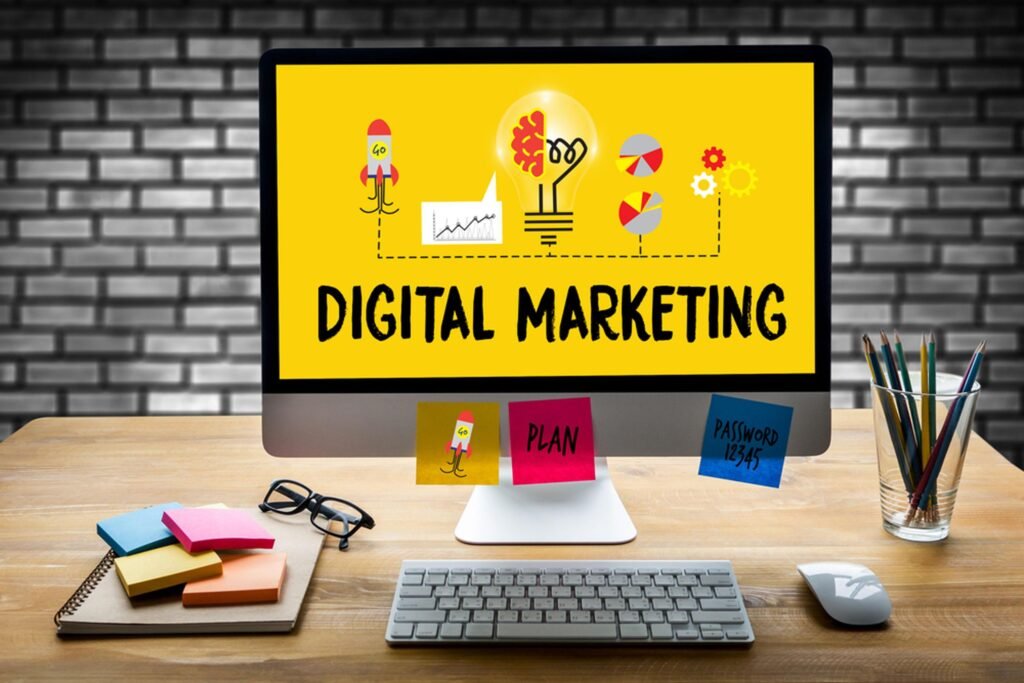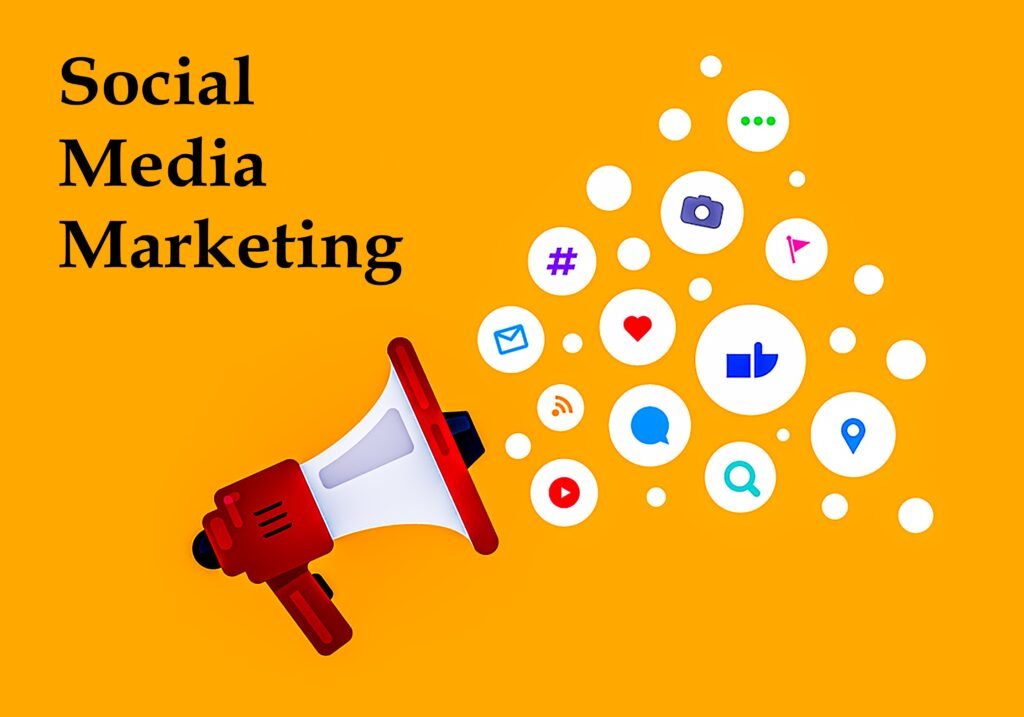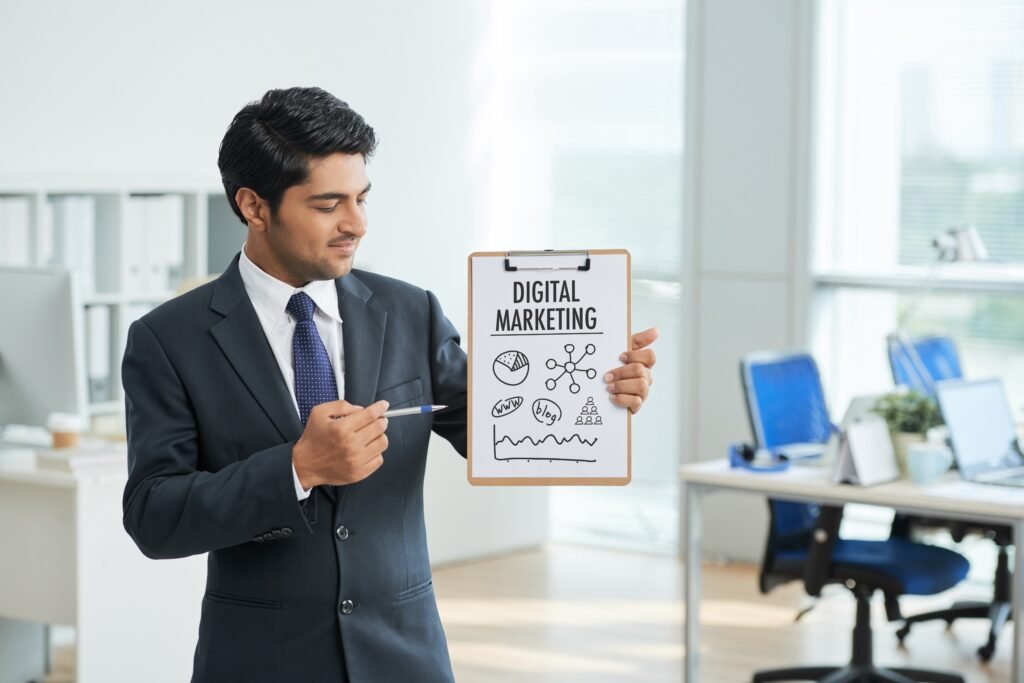What is Digital Marketing? A Complete Guide
Digital marketing is the practice of promoting brands and connecting with potential customers using online channels like social media, email, websites, and search engines, essentially utilizing the internet and other digital communication methods to reach a target audience and market products or services.
Understanding Digital Marketing
Digital marketing encompasses various strategies and techniques aimed at reaching consumers online. Businesses use digital platforms such as search engines, social media, email, and websites to connect with potential customers. The goal is to drive traffic, generate leads, and increase sales through strategic online efforts.

Key Components of Digital Marketing
To fully understand digital marketing, let’s break it down into its core components:
1. Search Engine Optimization (SEO)
SEO is the process of optimizing a website to rank higher on search engines like Google. It involves keyword research, on-page SEO (meta tags, headings, URL structure), off-page SEO (backlinks, social signals), and technical SEO (site speed, mobile-friendliness).
2. Content Marketing
Content marketing focuses on creating valuable content to attract and engage an audience. This includes blog posts, articles, infographics, videos, and ebooks. Quality content helps build trust and authority in your industry.
3. Social Media Marketing

Social media platforms like Facebook, Instagram, Twitter, and LinkedIn allow businesses to engage with their audience. Posting regularly, running ads, and engaging with followers can help boost brand awareness and drive traffic to a website.
4. Pay-Per-Click Advertising (PPC)
PPC involves running paid ads on platforms like Google Ads, Facebook Ads, and Bing Ads. Advertisers pay only when users click on their ads, making PPC a cost-effective way to generate leads and sales.
5. Email Marketing
Email marketing remains one of the most effective ways to nurture leads and build customer relationships. Personalized emails, newsletters, and promotional campaigns help businesses stay connected with their audience.
6. Affiliate Marketing
Affiliate marketing is a performance-based strategy where businesses partner with affiliates who promote their products in exchange for a commission. This helps drive sales through third-party recommendations.
7. Influencer Marketing
Influencer marketing leverages popular personalities on social media to promote a brand. Influencers with large followings can help businesses gain credibility and reach new audiences.
8. Video Marketing
With platforms like YouTube, TikTok, and Instagram Reels gaining popularity, video marketing has become essential. Videos improve engagement, brand awareness, and conversions.

Why Digital Marketing is Important
Digital marketing offers several advantages that make it a must-have strategy for businesses:
- Cost-Effective: Compared to traditional advertising, digital marketing is more affordable and provides a higher return on investment (ROI).
- Targeted Reach: Businesses can target specific audiences based on demographics, interests, and online behavior.
- Measurable Results: Analytics tools allow marketers to track performance, measure success, and adjust strategies accordingly.
- Global Reach: Digital marketing breaks geographical barriers, enabling businesses to reach international audiences.
- Customer Engagement: Through social media and email marketing, businesses can interact with their customers in real-time.
How to Get Started with Digital Marketing
If you’re new to digital marketing, here’s how you can get started:
- Define Your Goals – Identify what you want to achieve (brand awareness, lead generation, sales growth, etc.).
- Choose the Right Channels – Select the digital marketing channels that align with your business objectives.
- Create High-Quality Content – Develop engaging and valuable content for your audience.
- Optimize for SEO – Ensure your website is optimized for search engines to improve visibility.
- Leverage Social Media – Engage with your audience through social media platforms.
- Use Paid Advertising – Consider PPC ads to drive quick traffic and conversions.
- Analyze and Improve – Use tools like Google Analytics to track progress and make necessary adjustments.
Conclusion
Digital marketing is a powerful tool that enables businesses to grow and connect with their target audience effectively. By leveraging SEO, content marketing, social media, and paid advertising, businesses can enhance their online presence and achieve success. Whether you’re a startup or an established company, embracing digital marketing strategies will help you stay competitive in today’s digital world.


